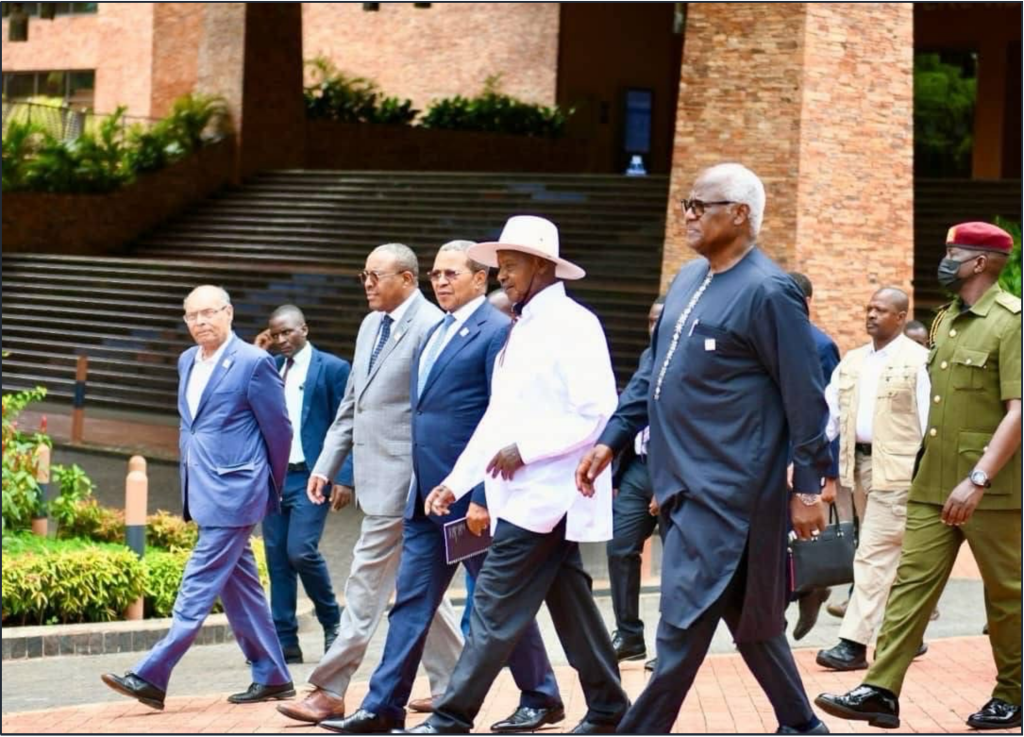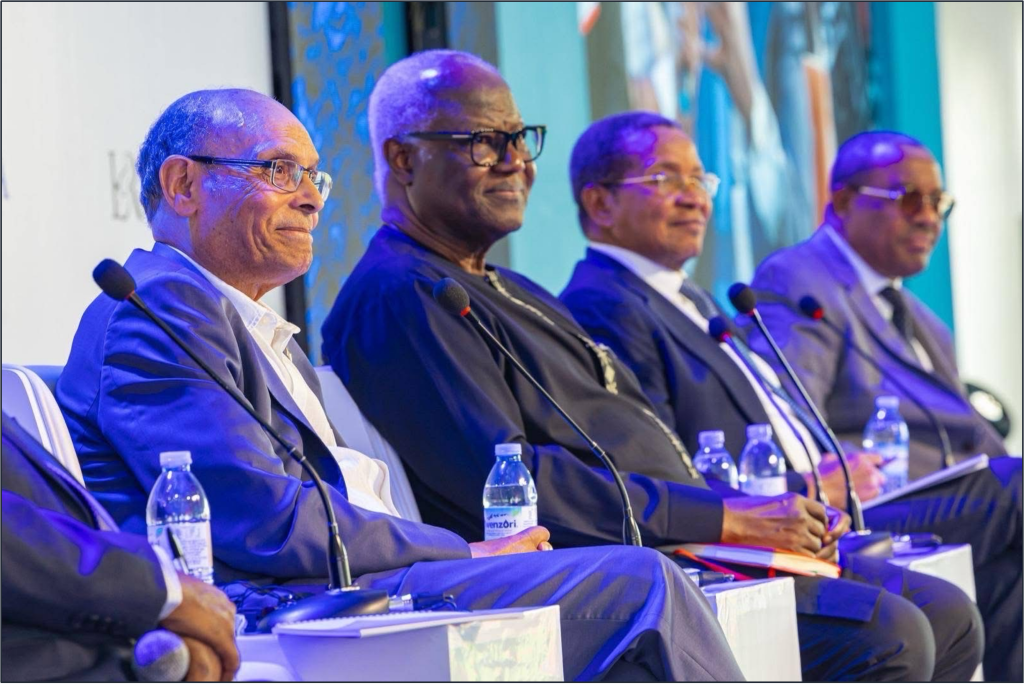On April 7–8, 2025, the vibrant city of Kampala played host to the 8th African Leadership Forum (AFL), under the compelling theme “Realizing the Sustainable Development Goals (SDGs) in Africa: Progress and the Way Forward.” This significant gathering was co-hosted by the UONGOZI Institute, the Hailemariam & Roman Foundation, and the United Nations Economic Commission for Africa (UNECA). It brought together a diverse group of former heads of state, current leaders, policy experts, and representatives from African institutions, all united in their commitment to critically reflect on Africa’s journey toward achieving the SDGs.
A Decade of Reflection on the SDGs
The Forum commenced with an inspiring address from former Tanzanian President Jakaya Kikwete, who emphasized the origins of the AFL. Established by notable leaders such as Presidents Olusegun Obasanjo, Benjamin Mkapa, and Festus Mogae, the forum serves as a vital platform for addressing Africa’s challenges and generating solutions rooted in African perspectives. Kikwete stressed the necessity of honest dialogue as a means to foster credible leadership and effective solutions to the continent’s issues.
Sam Kutesa, who had the honor of presiding over the UN General Assembly during the adoption of the SDGs in 2015, echoed Kikwete’s sentiments. He articulated a strong belief in the relevance of the SDGs but did not shy away from discussing the stark realities of their implementation across Africa. “The SDGs are valid,” he asserted, “but their execution across Africa has fallen short. The time for action is now.” His words resonated with the audience, serving as a clarion call for urgent action.
Celebrating Progress Amidst Challenges
During the Forum, UNECA’s Deputy Executive Secretary, Antonio Pedro, acknowledged the commendable strides Africa has made, particularly in education, gender representation, and the strengthening of regional voices. He pointed out that the continent is no longer in the post-independence or Structural Adjustment Program (SAP) era but cautioned that persistent issues such as poverty, disease, unemployment, and climate crises must be addressed.
Pedro advocated for a shift in investment philosophy, urging leaders to prioritize value-based investments that go beyond mere profit-making. He emphasized the need for a recalibration of the SDGs toward job creation, food security, and human capital development. Furthermore, he highlighted the importance of operationalizing the African Continental Free Trade Area (AfCFTA) to mitigate economic fragmentation across the continent.
The Interconnectedness of Health, Education, and Agriculture
Former President Ernest Bai Koroma of Sierra Leone delivered a powerful address that underscored the interconnectedness of health outcomes, access to social services, and human capital development. He argued that no nation can thrive while its citizens are burdened by preventable diseases and inadequate public systems. Koroma stressed the importance of aligning education and skills development with the demands of modern labor markets. “Africa’s demographic dividend can only be transformed into tangible growth if young people are equipped with relevant, future-oriented competencies, including digital skills, entrepreneurship, and vocational training,” he stated emphatically.

Koroma also spotlighted agriculture as a crucial engine for growth, capable of creating jobs, ensuring food security, and driving industrialization. However, he lamented that this potential remains largely untapped due to an over-reliance on subsistence farming. “Only through value addition, technological innovation, and a modernized value chain can agriculture contribute meaningfully to inclusive economic transformation,” he urged.
Advocating for Homegrown Solutions
Former Prime Minister Hailemariam Desalegn of Ethiopia painted a vivid picture of a continent rich in resources yet burdened by poverty, inadequate infrastructure, and a dependence on donor funding. He called for homegrown solutions that include renewable energy development, governance reforms, climate-resilient infrastructure, regional integration through AfCFTA, and a paradigm shift centered on the needs of the people.
Moncef Marzouki, former President of Tunisia, echoed these sentiments, highlighting the need for bold and selfless leadership while lamenting corruption as a significant impediment to African development.
Expert Insights and Calls for Action
MAFA E. Chipeta, former FAO Regional Head for East Africa, offered a sobering critique of Africa’s approach to international agreements. He argued that the continent often signs treaties without prioritizing or resourcing their implementation. “We must stop running Africa on external instructions,” he asserted. Chipeta emphasized the need to prioritize SDGs that are crucial for Africa’s structural transformation, rethink fossil fuel strategies, reclaim value chains, promote domestic trade, and utilize local currencies in intra-African trade to reduce external dependencies.
His compelling example of coffee exports—where Africa earns a mere $2 per kilo while Europe profits $10 per cup—served as a powerful reminder of the need for value addition and economic justice.
Practical Strategies for Sustainable Development
President Yoweri Museveni of Uganda connected sustainable development to social transformation, drawing on Uganda’s economic journey. He outlined practical strategies, including a ban on raw mineral exports to retain value locally and state-driven support for agriculture to elevate rural populations into the money economy. Museveni also stressed the importance of infrastructure development linked to AfCFTA and the necessity of education and health reforms as crucial enablers of human capital.
He challenged his fellow citizens to aspire to expand their economies ambitiously, setting a target of achieving a $500 billion economy in Uganda through productivity and structural change.
A Forum of Resolve and Determination
The AFL was more than just a platform for discussions; it emerged as a space for introspection, bold ideas, and a clear commitment to making Africa’s development journey more self-determined. The Forum concluded with a call for a re-prioritization of the SDGs in alignment with Africa’s unique development needs, massive investments in youth education and job creation, and a focus on value addition and local industrialization as economic cornerstones.
The leaders and experts present made it clear: Africa does not require charity; it needs cooperation, fairness in trade, and courageous, visionary leadership. “Africa must not just rise—it must lead,” concluded Antonio Pedro, encapsulating the collective resolve of the Forum to forge a path toward a more prosperous and self-reliant Africa.
